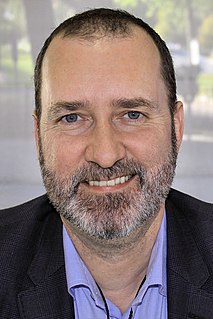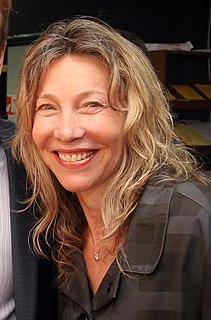A Quote by Barbara Ehrenreich
The only truly new ideas [the right] has come up with in the last twenty years are (1) supply side economics, which is a way of redistributing the wealth upward toward those who already have more than they know what to do with, and (2) creationism, which is a parallel idea for redistributing ignorance out from its fundamentalist strongholds to those who know more than they need to.
Related Quotes
Even in an advanced stage of civilization, there is always a tendency to prefer those parts of literature which favor ancient prejudices, rather than those which oppose them; and in cases where this tendency is very strong, the only effect of great learning will be to supply the materials which may corroborate old errors and confirm old superstitions. In our time such instances are not uncommon; and we frequently meet with men whose erudition ministers to their ignorance, and who, the more they read the less they know.
Man is more than his environment. It is from the innate quality of the Spirit in him, his inner storehouse, that he draws those ideas, his intuitions, which unify his perceptions of the external world instantaneously with a value which is qualitative and not quantitative, and which he embodies in the works of his culture - those achievements which belong not only to one particular time but to all times, and mark the path of his upward progress.
No advance, no progress can be made beyond these propositions. If anyone wishes to deny their truth or their soundness, the only direction in which he can proceed historically is not forward, but backward toward a time when there was no equality, no rights of the individual, no rule of the people. Those who wish to proceed in that direction cannot lay claim to progress. They are reactionary. Their ideas are not more modern, but more ancient than those of our Revolutionary ancestors.
Is there an idea more radical in the history of the human race than turning your children over to total strangers whom you know nothing about, and having those strangers work on your child's mind, out of your sight, for a period of twelve years? Could there be a more radical idea than that? Back in Colonial days in America, if you proposed that kind of idea, they'd burn you at the stake, you mad person! It's a mad idea!
The free market is notorious for distributing resources in a highly unequal manner, with great concentrations of wealth at the top and poverty at the bottom. Our social programs, modest compared to those of many other Western countries, play an important role in redistributing some of those resources from the haves to the have-nots.
There is no word in our language which has been so much misused and prostituted as the word love. It has been preached by those who were ready to condone every cruelty if it served their purpose; it has been used as a disguise under which to force people into sacrificing their own happiness, into submitting their whole self to those who profited from this surrender. [...] It has been made so empty that for many people love may mean no more than that two people have lived together for twenty years just without fighting more often than once a week.
My love stories are about people who are reluctant to actualize what they so desperately want. They are timid, cautious, but eventually they dare to speak. My characters are not only hesitant; they are ambivalent about which way their libido flows: toward men or women? They are fluid in their sexuality, and this ambivalence says more about how we think about sex today than, say, Tinder. And this is a truly modern idea: Most of us don't know who we are sexually.
I sell ideas. Actually, if you think about it, everything is really no more than idea. The past is nothing more than a memory, which is one kind of idea. The future is still a hope, another kind of idea. The present is fleeting and becomes a memory before you can put your hands on it. All ideas. I sell ideas.
You know, an idea is just an idea. There seems to... the kind of epiphanies that you have, like the little sudden bursts of light, they're very small and they're very short and it's the pursuit of the idea that's the important thing. . . . I know a lot of people who have way better ideas than I do that-much more frequently than I do that just can't sit down and actually do it. Ideas are such are a little overrated really; it's the work behind the idea that's the important thing.






































